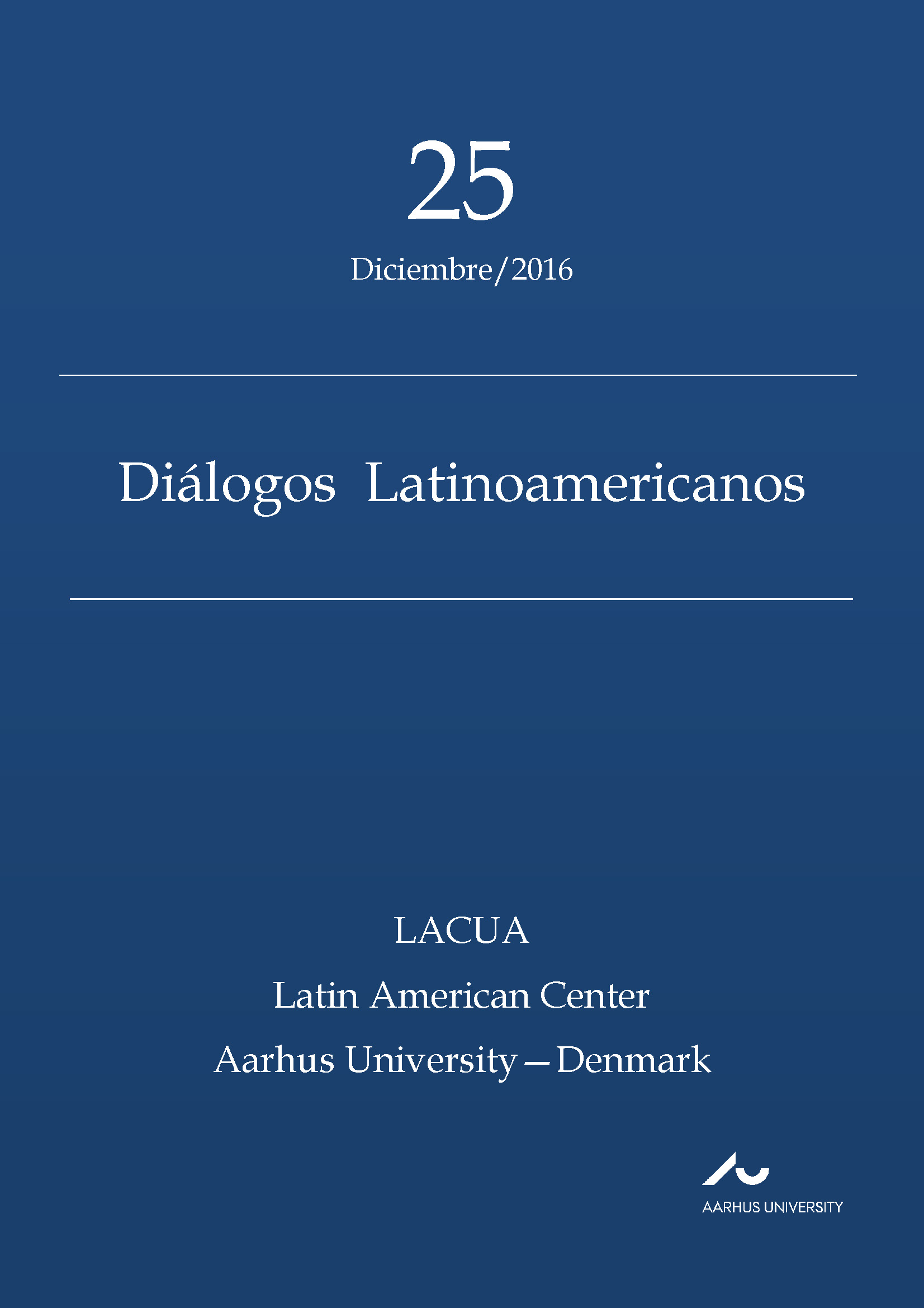What is left of the protests?
Social movements and youth empowerment in Brazil
DOI:
https://doi.org/10.7146/dl.v17i25.112909Keywords:
Social movements, Youth participation, Communcation networks, Social media, Political leadership, Self governmentAbstract
Over the past few years, new forms of socialization of politics through
social media have found expression in collective mobilizations. The paper
examines the case of the recent uprisings in Brazil. It presents the results of
a qualitative research carried out between June 2013 and June 2015, with
focus on the actors involved, their reasons to participate, as well as the
continuity of their action. Three research tools were used in the study: social
media mapping, an online survey and interviews with activists. The findings
give credit to the existence of a connective logic on the social networks, as
they illustrate that what attracted the masses in June 2013 was mainly the
‘event of a protest’. Nevertheless, political engagement was found to
increase in smaller circles, among groups of youth who got involved during
the uprisings, and are motivated by the idea of a political resistance up to
present days.
References
Digital media and the Personalization of Contentious Politics.
New York: Cambridge University Press
Carpentier, N. (2012). The Concept of Participation. If They Have
Access and Interact, Do They Really Participate? Revista
Fronteiras – estudos midiáticos, 14 (2): 164-177
Castells, M. (2012). Networks of Outrage and Hope: Social
Movements in the Internet Age. Cambridge, UK: Polity Press
Coleman, S., & Blumler, J. G. (2009). The Internet and Democratic
Citizenship: Theory, Practice and Policy. Cambridge; New York:
Cambridge University Press
Gee, J. P. (2007). “Affinity Spaces: From Age of Mythology to
Today’s Schools”. In: Good Video Games + Good Learning:
Collected Essays on Video Games, Learning, and Literacy, 87-
103. New York, NY, United States: Peter Lang
Gerbaudo, P. (2012). Tweets and the Streets. Social Media and
Contemporary Activism.London: Pluto Press
Gutierrez, B. (2013). As revoltas em rede como uma nova arquitetura
do protesto. Revista Alegrar, No. 12
Interagentes (2013). Cartografia de espaços híbridos: as
manifestações de junho de 2013. Available at
http://portal.interagentes.cc/?p=62. Last Access: July 18th 2014
Janowski, N. & van Selm, M. (2000). “The Promise and Practice of
Public Debate in Cyberspace”. In: Hacker, K. & Van Dijk, J.
(eds). Digital Democracy, Issues of Theory and Practice: 149-
165. London, Thousand Oaks, New Delhi: Sage
Jenkins, H. (2006). Convergence Culture: Where Old and New
Media Collide. New York and London: New York University
Press.
Kleinberg, J. M. (1999). Authoritative Sources in a Hyperlinked
Environment. Journal of the ACM, Vol. 46 No. 5: 604-632
Moraes, T. P. B. & Santos, R. M. (2013). Os protestos no Brasil. Um
estudo sobre as pesquisas na web, e o Caso da Primavera
Brasileira. Rev. Int. Inv. Cienc. Soc., Vol. 9. No. 2, diciembre
2013: 193-206.
Mossberger, K., Tolbert, C. J., & McNeal, R. S. (2007). Digital
Citizenship: The Internet, Society, and Participation. Cambridge,
MA: The MIT Press
Norris, P. (2001). Digital Divide, Civic Engagement, Information
Poverty and the Internet worldwide. Cambridge, UK:
Cambridge University Press
Pischetola, M. (2014). Protests in Brazil: the Role of Social Media in
Political Action. Social Media and the Transformation of Public
Space Congress. University of Amsterdam, The Netherlands, June
18-20, 2014
Porto, M. & Brant, J. (2014). Digital Platforms and the 2013 Protests
in Brazil: the Contradictory Nature of Political Mobilization in the
Digital Era. Social Media and the Transformation of Public Space
Congress, University of Amsterdam, The Netherlands, June 18-
20, 2014.
Reedy, J. & Wells, C. (2009). “Information, the Internet and Direct
Democracy”. In: Chadwick, A. & Howard, P. H. (eds.). Routledge
Handbook of Internet Politics: 157-172. London and New
York: Routledge
Santos, R. (2009). Mídia, democracia e participação efetiva:
liberdade, igualdade e participação política. Trabalho apresentado
no XXXII Congresso Brasileiro de Ciências da Comunicação,
Curitiba/PR
Van Dijk, J. (2012). “Digital Democracy: Vision and Reality”. In:
Snellen, I. & Van de Donk, W. Public Administration in the
Information Age: Revisited. Amsterdam: IOS Press
Van Dijck, J. & Poell, T. (2013). Understanding Social Media Logic.
Media and Communication, Vol. 1, Issue 1: 2-14
Werneck, A. (coord) (2015). Violências moduladas: gramáticas e
dispositivos da crítica e da negociação na conflitualidade urbana
no Rio de Janeiro. Relatório de pesquisa. Rio de Janeiro,
Fundação Carlos Chagas Filho de Amparo à Pesquisa do Estado
do Rio de Janeiro (Faperj). Unpublished research report,
Universidade Federal do Rio de Janeiro.
Downloads
Published
How to Cite
Issue
Section
License
Counting from volume 31 (2022), articles published in Diálogos Latinoamericanos are licensed under CC-BY 4.0. Read more about the license terms here https://creativecommons.org/licenses/by/4.0/.
No Creative Commons license applied on volumes 1-30. All rights reserved by the authors. Readers may download, read, and link to the articles, but they cannot republish the articles.
With the publication of volume 31 (2022), authors retain the full copyright to their articles and give Diálogos Latinoamericanos the right to the first publication. Authors also retain copyright to earlier versions of manuscripts, such as the submitted (pre-print) and the accepted manuscript (post-print).
Copyright to articles published in volumes 1-30 is held by the authors.





